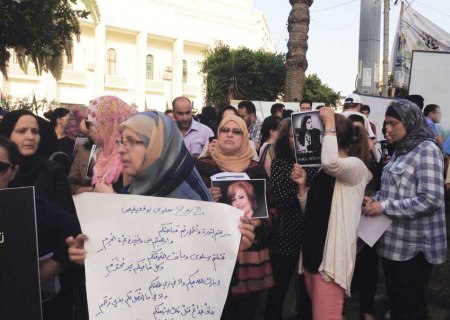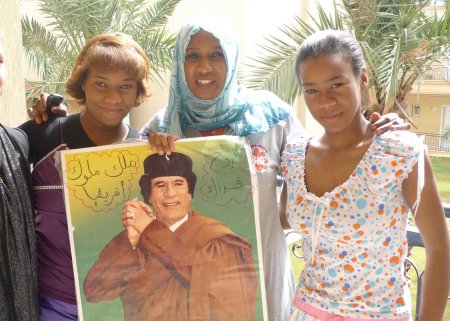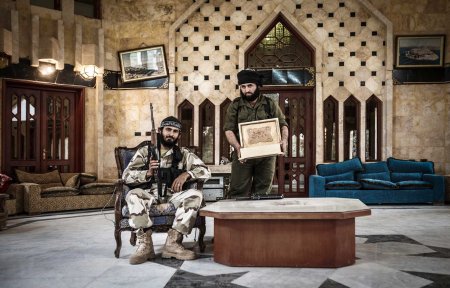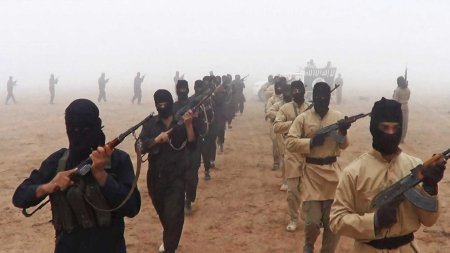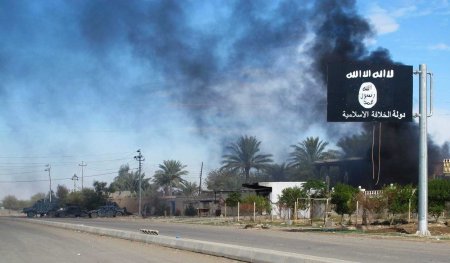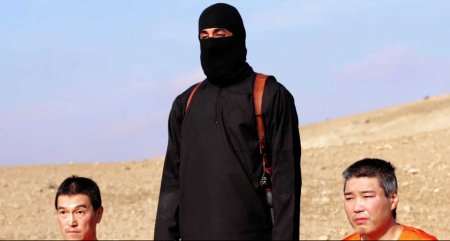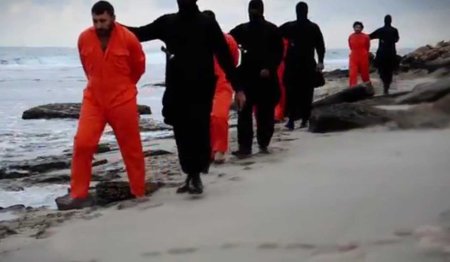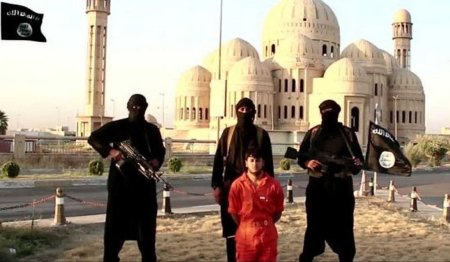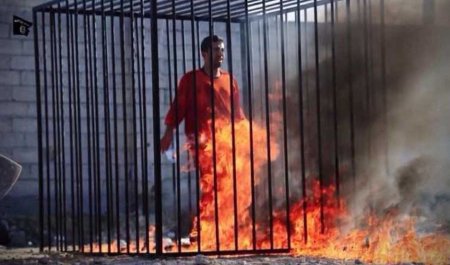Environmental news:
http://www.abc.net.au/news/2015-03-11/fukushima-radiation-levels-high-four-years-after-disaster/6297718 Experts call for more testing (more testing is the ultimate solution of environmental problems)..
http://priceofoil.org/2015/03/03/climate-crisis-sales-suvs-booming-europe/
http://www.theglobeandmail.com/news/politics/anti-petroleum-movement-a-growing-security-threat-to-canada-rcmp-say/article23019252/
http://ensia.com/features/what-are-we-doing-to-our-childrens-brains/
http://touch.latimes.com/#section/-1/article/p2p-82856954/ Sea lions have a hard time.
http://www.independent.co.uk/news/toxic-fumes-in-plane-cabins-pose-health-risks-to-frequent-flyers-says-coroner-10062362.html Fly at your own risk.
http://press.endocrine.org/doi/pdf/10.1210/jc.2014-4324 Endocrine disrupters are dangerous, as we already knew.
http://www.chron.com/life/healthzone/article/Your-cell-phone-could-be-making-you-fat-but-6123739.php Flame retardants are dangerous too.
dgrnewsservice.org/2015/02/16/open-letter-reclaim-environmentalism/Even if one is not a fan of Derrick Jensen, this letter is appropriate and right on target.
http://dgrnewsservice.org/2015/02/16/time-short-revolution-devolution/
http://www.earthisland.org/journal/index.php/elist/eListRead/climate_change_poses_serious_threats_to_food_distribution/
http://www.al-monitor.com/pulse/originals/2015/03/iran-land-grabbing-khamenei-environment.html
http://newint.org/blog/2015/03/04/agroecology-food-politics/
http://www.environmentalhealthnews.org/ehs/news/2015/mar/war-birth-defects-iraq-rachel-carson
http://www.tomdispatch.com/post/175968/tomgram%3A_william_debuys%2C_a_global_war_on_nature
http://www.ibtimes.co.uk/india-million-litres-untreated-sewage-polluting-holy-river-ganga-says-report-1491715
http://in.reuters.com/article/2015/03/12/india-budget-energy-idINKBN0M812D20150312
http://www.dhakatribune.com/bangladesh/2015/mar/10/industrial-waste-dyeing-chemical-slowly-killing-shitalakhya
http://www.newsweek.com/water-fluoridation-linked-higher-adhd-rates-312748
http://www.thetimes.co.uk/tto/environment/article4380445.ece Better grow your own strawberries.
http://www.msn.com/en-us/news/world/children-wasting-away-as-hunger-hits-200000-in-madagascar/ar-AA9D5ll
http://aeon.co/magazine/science/plastic-runs-in-my-family-and-in-yours-too/
http://www.japantimes.co.jp/news/2015/03/12/national/norway-whale-meat-dumped-japan-pesticide-finding/#.VQk1cShteql First we poison them, then we kill them. Beware of the most ferocious predator on the planet.
Technology news:
http://uk.businessinsider.com/obama-just-took-a-huge-shot-at-europe-over-tech-2015-2?r=US
Economic news:
http://petras.lahaine.org/?p=2021 The most authoritative analysis of the Greek crisis and yet, it omits the biggest problem, which is, that Greeks, like all other Westerners, lived beyond their means for many decades and in a time of dwindling resources face a viciously fought class war in which the moneyed elites try to maintain their level of rent extraction by cutting wages and public services for the broad population.
http://www.alternet.org/news-amp-politics/honduras-sold-libertarian-paradise-i-went-and-discovered-capitalist-nightmare
http://www.birchgold.com/dollar/beijing-doubles-down-on-yuan
https://www.opendemocracy.net/ian-fitzpatrick/secretive-and-seedy-how-aid-donors-are-opening-agribusiness-flood-gates
Imperial news:
http:///post/175957/tomgram%3A_engelhardt%2C_walking_back_the_american_twenty-first_century/ The American Dream.
http://blackagendareport.com/node/14684
http://www.workers.org/articles/2015/03/12/u-s-ranks-as-worlds-worst-in-jailing-women/
http://chuckman.blog.ca/2015/03/13/the-cia-and-america-s-presidents-some-rarely-discussed-truths-shaping-contemporary-american-democracy-20184001/
http://www.businessinsider.com/israeli-spying-on-us-has-reached-terrifying-levels-2014-5?IR=T
http://www.tomdispatch.com/post/175970/tomgram%3A_engelhardt%2C_is_a_new_political_system_emerging_in_this_country/
Imperial conquest news:
http://slavyangrad.org/2015/02/20/kindness-and-sympathy-from-europe-to-donbass/ Humanitarien help of the real kind!
http://journal-neo.org/2015/02/19/the-hilarity-of-george-soros-in-munich/
http://www.aina.org/news/20150216194247.htm
http://www.al-monitor.com/pulse/originals/2015/02/turkey-syria-weapons-civil-war-kessab-armenian.html
http://uk.reuters.com/article/2015/03/04/uk-mideast-crisis-nusra-insight-idUKKBN0M00G620150304
http://www.globalresearch.ca/the-isis-us-empire-their-unholy-alliance-fully-exposed/5436019
http://www.intifada-palestine.com/2015/02/phoenix-rising-ashes-syria/
http://www.mintpressnews.com/beleaguered-syrian-opposition-in-exile-is-about-to-collapse/203334/
http://www.ottawacitizen.com/news/world/Canadian+military+predicted+Libya+would+descend+into+civil/10853269/story.html
http://english.pravda.ru/hotspots/conflicts/27-01-2015/129621-green_resistance-0/ The West tries to ignore the majority of Libyans, who still hold Colonel Gaddafi in high esteem and desperately wish for one of his heirs to clean up the mess and reinstall the Jamahiriya revolution.
http://williamblum.org/aer/read/137
http://petras.lahaine.org/?p=2024 This is an outstanding analysis and a must read!
http://petras.lahaine.org/?p=2027
http://www.nakedcapitalism.com/2015/02/gazas-natural-gas-became-epicenter-international-power-struggle.html
http://www.alanhart.net/who-and-what-is-the-real-bibi-netanyahu/
http://www.counterpunch.org/2015/03/12/aipac-busting-up-peace-efforts/
https://consortiumnews.com/2015/03/18/netanyahu-unmasks-israel/
http://www.counterpunch.org/2015/03/20/the-end-of-the-liberal-zionist-facade/
http://rt.com/news/243081-palestine-water-shortages-israel/
http://www.intifada-palestine.com/2015/03/for-hamza-arms-sanctions-against-israels-everyday-terrorism/
http://www.globalresearch.ca/the-cuban-revolution-the-u-s-imposed-economic-blockade-and-us-cuba-relations/5433797http://www.globalresearch.ca/president-obama-declares-venezuela-a-threat-to-national-security-seeks-regime-change/5435615
http://www.globalresearch.ca/implementing-democracy-and-regime-change-in-enemy-countries-the-electoral-integrity-project/5436945
https://rickrozoff.wordpress.com/2015/02/28/john-pilger-why-the-rise-of-fascism-is-again-the-issue/
http://www.globalresearch.ca/hollywood-war-films-an-instrument-of-military-indoctrination-the-american-sniper-reviewers-consensus/5436277
http://www.workers.org/articles/2015/03/21/former-president-manuel-zelaya-calls-honduras-ruled-by-usa/
Everything else news:
http://www.truthdig.com/report/item/journalism_as_subversion_20150322
http://www.csmonitor.com/World/Security-Watch/terrorism-security/2015/0227/Atheist-US-writer-killed-in-Bangladesh-familiar-attack-on-free-expression
http://medialens.org/index.php/alerts/alert-archive/2015/786-conundrum-syriza-democracy-and-the-death-of-a-saudi-tyrant.html What else can the remaining few honest journalists do than point out the contradictions, the falsehood, and the hypocrisy of mainstream media reporting?
https://www.opendemocracy.net/ourkingdom/peter-oborne/why-i-have-resigned-from-telegraph
http://www.globalresearch.ca/the-psychology-psychiatry-psychoanalysis-nexus-mental-disorders-drives-big-pharma-profit-and-social-control/5432803
http://rstb.royalsocietypublishing.org/content/370/1664/20140094 This is about the origins of musicality across species (cats are unfortunately not very musical, but elephants, parrots, and sea lions are).
http://www.counterpunch.org/2015/03/20/the-bonobo-spring-revolution/Very nice.
===========
The link collection is rather arbitrary again and interesting articles may have been overlooked.
Garden work has started in earnest and I’m out in the garden 8 hours a day and more. Everyday I have to look for the plants and I’m busy with weeding, pruning, seeding, planting, transplanting, watering. In the evening I’m most times too tired to write well (or at least acceptable) formulated and meaningful texts. Blog posts will be shorter and less frequent. I’m considering all options which include temporarily or permanently stop blogging.
This blog is critical of US-American (imperial) policies and using WordPress, a US based blog host, is inconsequential and unprincipled. The mirror site is on Blogger (Google), also a US company. I’m searching for alternative blog hosts, but have not found anything appropriate until now.
I’m feeling not comfortable here, I have to say. I’m feeling guilty of supporting a US company.
And yet, the blog has still 89 followers and between 60 and 100 hits a day. As mainstream media (including the so called “alternate media”) are perfectly controlled and synchronized (gleichgeschaltet), even the smallest dissident voice is needed to call out the lies and point at the inconsistencies.
Uncovering the lies and revealing the flaws in the officially approved and simultaneously by the media disseminated narrative is not too difficult, because in the last years the absurdities, implausibilities, and incongruities in the media stories have become more and more glaring.
Journalism is fiction writing, news are fairytales, analyses and background reports are propaganda.
That the media stories do not adhere to logic or common sense is on purpose — it is a design, not a flaw.
Todays journalism has to fulfill two goals targeted at two different audiences: For the majority of uninformed, uneducated, naive people the stories need not to be logical, consistent, or plausible, they just need to fit common wishes, expectations, and prejudices.
For the minority of educated, informed, bright people the blatant distortions, inaccuracies, fabrications, lies themselves as well as the absence of even minimal efforts to conceal the lies and make the stories more congruent all purport a message. It is a message between the lines, it is a message which every intelligent person easily will understand.
The message is:
You are powerless, you are nothing, you have no chance. You are either for us or against us. You can either acquiesce, surrender, join the army of our minions, or resist and become a dissident, an enemy of the state, a terrorist, a target.
Don’t forget, we have the most advanced technologies at our disposal, and we improve our tools steadily (with your tax money).
Our automated mass surveillance will find you and monitor you.
Our automated propaganda (bots on social media and comment sections) will distract, confuse, indoctrinate, reeducate, brainwash your relatives, friends, and acquaintances. You will become isolated.
Our automated killing machines (drones, combat robots), will hunt you down and exterminate you.
We have warned you. Make a sensible choice.

Today I made a very sad discovery. On the small road between the garden and the forest I found two dead toads, squashed by a car. They were laying side by side, probably a couple who wanted to reach the garden ponds and put their eggs in.
There is not much traffic on this road and nevertheless the two toads were killed as they tried to cross. They were not guilty of anything, they did not hurt anybody, they did no damage, they just tried to live and reproduce to keep their species going on. Is that too much asked for by a little toad?
I hate cars.
News roundup
The dying in Syria goes on unabated and a steady inflow of weapons, money, and deranged young men keeps the flames of war burning bright.
There is more and more proof that IS (Islamic State) is a combined project of Israel, Turkey, Saudi Arabia, and the USA. Recently a helicopter who delivered supplies to IS was shot down by Iraqi forces and three military contractors were detained. Two of them have dual US/Israeli citizenship.
Such news will never be published in Western media.
IS may be a joint project, but the intentions of the co-creators differ. For Israel the Islamic brutes are not different from the cluster bombs and white phosphorus which were poured onto Gaza. The IS fighters are human cluster bomblets and they shall destroy the societies of the Muslim states which surround Israel. IS members are disposable of course.
For Turkey the Islamic fighters are brothers in mind, who try to establish a social order which Turkey at the moment cannot openly aspire. IS are the trailblazers, establishing a rigid Islamic society, therefore they deserve all sympathy and loving support.
For Saudi Arabia IS constitutes one of many terrorist groups to which the local surplus of aggressive young men is assigned. These men with high levels of testosterone would only cause instability at home, so it is better to let them cause instability abroad. Saudi Arabia also acts as a facilitator for the USA by providing both funds and human material for the CIA-controlled terrorist groups.
For the US IS has three purposes. It first creates chaos in Syria and Iraq, it second opens the door for a military intervention (no fly zone) in Syria, and third is an entrapment scheme, where all undesirable and unneeded young men are gathered at one place to be easily targeted and whipped out.
The USA is step by step preparing the ground for military action against the Syrian government. First, as the FSA (Free Syrian Army) has collapsed, and there are no other “moderate” Islamic fighters which the West could use to destroy the Syrian state, some of the notorious Islamic terror groups are declared as “moderate” rebels, to be trained and equipped in Turkey, Saudi Arabia, Qatar, and Jordan. They will get adequate modern equipment for sure, but as they will be still underequipped in comparison to the Syrian army and also don’t have their own air force, they have to be protected by the USA. Which means: eventually a no-fly zone has to be established to protect the poor underequipped moderate Islamic terrorists. The term “no-fly zone” is an euphemism for a “shock and awe” bombing campaign a la Libya, and the goal is to destroy everything what, after four years of a draining war, is still left of Syrian state institutions.
The moderate Islamic terrorists will be advised to pause with beheadings and rapes in the weeks before the bombing (or at least not to publish videos of such pastimes) so that the US humanitarian efforts don’t get a bad rep.
Will Russia send enough S-400 anti-aircraft missile systems to make this plan a risky undertaking?
If not, Putin will be guilty a second time of standing by idle as the USA are bombing another nation into a failed state. And there will be no excuse, because Putin knows very well what happened in Libya.
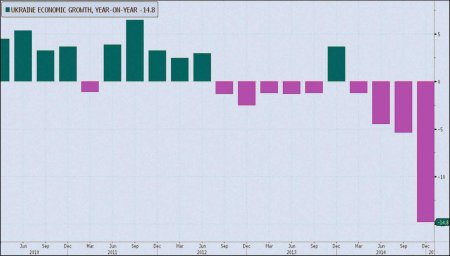
The Ukrainian scenario is different, but idle aggressive young men play an important role too and are utilized in a similar way.
The Pravy Sektor is just negotiating to join the Ukrainian army as an independent division under Dmytro Yarosh. Until now the Pravy Sektor is an independent volunteer battalion like Azov or Airdar fighting alongside the Ukrainian army against pro-Russian separatists in the east.
This is an interesting concept. Imagine the Ku Klux Klan or the John Birch Society integrated into the US army as an independent division. Or Golden Dawn integrated into the Greek army. Or the German NDP into the Bundeswehr. Such a move would surely boost motivation and commitment of the mentioned military organizations.
There are winners and losers in the Ukrainian power games.
Losers are Rinat Akhmetov, Dmitry Firtash (at the moment locked up in Austria), and Viktor Pinchuk. Pinchuk supported Maidan wholeheartedly and has payed big sums to the Clinton clan, and yet, he is facing ruin.
A big winner is Petro Poroshenko. Becoming Ukraine’s president was for sure a good business move for him, because Roshen profits have sharply risen even as most other Ukrainian companies struggle to stay alive. Roshen revenue in 2014 was 1 billion US$, the Roshen Kyiv Factory increased its net income almost ninefold to $1.4 million. Only the Russian plant in Lipetsk is not doing well, in 2014 the factory incurred its first loss in six years.
Ihor Kolomoisky was a winner too, but after his troops were storming the headquarters of Ukrnafta and UkrTransNafta he was swiftly dismissed as governor of Dnipropetrovsk by Poroshenko. US ambassador Geoffrey Pyatt met with Kolomoisky during the stand-off and said in a radio interview afterwards that the Dnipropetrovsk governor realized “the law of the jungle” no longer applies, and that companies needed to be run as the law requires.
It is the USA which decides, but that was known before.
Kolomoisky still has means to fight Poroshenko. He owns Privatbank, arguably the backbone of the country’s financial infrastructure, and already blocked Poroshenkos account for a few hours. He is also said to be popular in Dnipropetrovsk, where he reportedly is seen as a savior from a Russian invasion.
Three more Ukrainian banks have been closed (VAB Bank, Astra Bank, and City Commerce Bank). In April various price and tax hikes will hit the Ukrainian population. Some utility prices will increase 300 percent. People will be furious and if Kolomoisky would have waited a few weeks longer he could have had a chance to topple Poroshenko in a coup. Some eight or nine thousand members of the punitive battalions are considered to be loyal to him (Azov, Aidar, Dnipro, Dnepr-1, Dnepr-2).
But he is an impulsive man and not a great strategist. He is just a ruthless gangster who became rich in the privatization rush after the dissolution of the Soviet Union.

I don’t dare to predict how this all will end. I don’t believe in grand analysis and also not in the descriptions of grand schemes which supposedly will determine the next decades.
There may be various grand plans (like Brzezinski’s Grand Chessboard), but they work against each other and foil each other or are based on wrong assumptions.
Quite a few intelligent and well intentioned authors (Finian Cunningham, Pepe Escobar, Sharmine Narwani for instance) have fallen into the trap, publishing articles in which certain and inevitable outcomes of trends and developments were postulated.
Such analyses are often projections (wishful thinking) and while the articles are cheered by a receptive audience who is thankful for the easily understandable formulas and algorithms and also for the implied positive outlooks, these analyses are just crude abbreviations, necessarily so, because a detailed analysis of the particular situation would not fit into an article.
But who, in the age of Facebook and Twitter, has enough time and focus to carefully read a detailed analysis which exceeds 2000 words?
News from cat land
Only short because I’m terrible tired and want to sleep:
Everything is fine here and the cats are seemingly healthy. They are lovely and adorable, as always, and everyday we make a walk in the forest.

Linda and Gandhi Jr. have become the closest friends and are always together. If there can be a love story between cats, this is one, and if Linda would not have been spayed and Gandhi Jr. not been neutered there would be many lovely kittens frolicking in the house and in the garden.
Our little Linda lady never misses a walk but a few days ago she stayed in the forest and she was away the whole night and half of the next day. I was quite concerned, because in 2011 my beloved cat Cindy, who also had the habit to leave the group during the daily walk and remain in the forest, disappeared and was probably killed by a hunter.
It was hunting season when Cindy disappeared, and at the moment hunters are not active. But Linda could also have been attacked by a fox or a marten. Linda is very fast and the best tree climber of the family, but she is still unexperienced. It could easily have been that she just overlooked an approaching enemy.
At noon I went out with Gandhi Jr. to look for her and we took the same rout as the day before. I was regularly calling her name. Just as we reached the point furthest away from our home I heard a faint meowing. I called again and the responding meow made it clear that it was Linda indeed. She meowed continuously and apparently slowly came nearer, it seemed that she had a hard time making it to our position.
In the last years the forest has been overgrown with wild blackberries, who have nasty thorns and make many areas of the forest impassable. A thick maze of blackberries is nearly impenetrable for humans and hard to pass even for a cat.
Yet Linda made it and after approximately two minutes she appeared from the underbrush, exhausted but very relieved. She was so glad to be reunited with us, she purred and licked my hand and she rubbed here nose with Gandhi Jr. I told her that we really had missed her and had worried about her and that in the future she should not stay away for such a long time.
I’m not sure if she understood me, but she unquestioning accepted all what I said and we three went back together to our safe, dry, and warm home.

As I mentioned already in earlier blog posts, it could well be that this year and the two years before will be the most happy time in my life. I would wish that it could go on like this for many more years, but it will not. I will get older and my dear cat friends will die one by one. Or I will die before them, which would of course spare me the sorrow of loosing my feline friends, but would have the disadvantage that I could not guard them affectionately through their lives till their very end.
Anyway, we all will try to make the best out of it and enjoy the days which fate has allotted us to the fullest.


http://www.abc.net.au/news/2015-03-11/fukushima-radiation-levels-high-four-years-after-disaster/6297718 Experts call for more testing (more testing is the ultimate solution of environmental problems)..
http://priceofoil.org/2015/03/03/climate-crisis-sales-suvs-booming-europe/
http://www.theglobeandmail.com/news/politics/anti-petroleum-movement-a-growing-security-threat-to-canada-rcmp-say/article23019252/
http://ensia.com/features/what-are-we-doing-to-our-childrens-brains/
http://touch.latimes.com/#section/-1/article/p2p-82856954/ Sea lions have a hard time.
http://www.independent.co.uk/news/toxic-fumes-in-plane-cabins-pose-health-risks-to-frequent-flyers-says-coroner-10062362.html Fly at your own risk.
http://press.endocrine.org/doi/pdf/10.1210/jc.2014-4324 Endocrine disrupters are dangerous, as we already knew.
http://www.chron.com/life/healthzone/article/Your-cell-phone-could-be-making-you-fat-but-6123739.php Flame retardants are dangerous too.
dgrnewsservice.org/2015/02/16/open-letter-reclaim-environmentalism/Even if one is not a fan of Derrick Jensen, this letter is appropriate and right on target.
http://dgrnewsservice.org/2015/02/16/time-short-revolution-devolution/
http://www.earthisland.org/journal/index.php/elist/eListRead/climate_change_poses_serious_threats_to_food_distribution/
http://www.al-monitor.com/pulse/originals/2015/03/iran-land-grabbing-khamenei-environment.html
http://newint.org/blog/2015/03/04/agroecology-food-politics/
http://www.environmentalhealthnews.org/ehs/news/2015/mar/war-birth-defects-iraq-rachel-carson
http://www.tomdispatch.com/post/175968/tomgram%3A_william_debuys%2C_a_global_war_on_nature
http://www.ibtimes.co.uk/india-million-litres-untreated-sewage-polluting-holy-river-ganga-says-report-1491715
http://in.reuters.com/article/2015/03/12/india-budget-energy-idINKBN0M812D20150312
http://www.dhakatribune.com/bangladesh/2015/mar/10/industrial-waste-dyeing-chemical-slowly-killing-shitalakhya
http://www.newsweek.com/water-fluoridation-linked-higher-adhd-rates-312748
http://www.thetimes.co.uk/tto/environment/article4380445.ece Better grow your own strawberries.
http://www.msn.com/en-us/news/world/children-wasting-away-as-hunger-hits-200000-in-madagascar/ar-AA9D5ll
http://aeon.co/magazine/science/plastic-runs-in-my-family-and-in-yours-too/
http://www.japantimes.co.jp/news/2015/03/12/national/norway-whale-meat-dumped-japan-pesticide-finding/#.VQk1cShteql First we poison them, then we kill them. Beware of the most ferocious predator on the planet.
Technology news:
http://uk.businessinsider.com/obama-just-took-a-huge-shot-at-europe-over-tech-2015-2?r=US
Economic news:
http://petras.lahaine.org/?p=2021 The most authoritative analysis of the Greek crisis and yet, it omits the biggest problem, which is, that Greeks, like all other Westerners, lived beyond their means for many decades and in a time of dwindling resources face a viciously fought class war in which the moneyed elites try to maintain their level of rent extraction by cutting wages and public services for the broad population.
http://www.alternet.org/news-amp-politics/honduras-sold-libertarian-paradise-i-went-and-discovered-capitalist-nightmare
http://www.birchgold.com/dollar/beijing-doubles-down-on-yuan
https://www.opendemocracy.net/ian-fitzpatrick/secretive-and-seedy-how-aid-donors-are-opening-agribusiness-flood-gates
Imperial news:
http:///post/175957/tomgram%3A_engelhardt%2C_walking_back_the_american_twenty-first_century/ The American Dream.
http://blackagendareport.com/node/14684
http://www.workers.org/articles/2015/03/12/u-s-ranks-as-worlds-worst-in-jailing-women/
http://chuckman.blog.ca/2015/03/13/the-cia-and-america-s-presidents-some-rarely-discussed-truths-shaping-contemporary-american-democracy-20184001/
http://www.businessinsider.com/israeli-spying-on-us-has-reached-terrifying-levels-2014-5?IR=T
http://www.tomdispatch.com/post/175970/tomgram%3A_engelhardt%2C_is_a_new_political_system_emerging_in_this_country/
Imperial conquest news:
http://slavyangrad.org/2015/02/20/kindness-and-sympathy-from-europe-to-donbass/ Humanitarien help of the real kind!
http://journal-neo.org/2015/02/19/the-hilarity-of-george-soros-in-munich/
http://www.aina.org/news/20150216194247.htm
http://www.al-monitor.com/pulse/originals/2015/02/turkey-syria-weapons-civil-war-kessab-armenian.html
http://uk.reuters.com/article/2015/03/04/uk-mideast-crisis-nusra-insight-idUKKBN0M00G620150304
http://www.globalresearch.ca/the-isis-us-empire-their-unholy-alliance-fully-exposed/5436019
http://www.intifada-palestine.com/2015/02/phoenix-rising-ashes-syria/
http://www.mintpressnews.com/beleaguered-syrian-opposition-in-exile-is-about-to-collapse/203334/
http://www.ottawacitizen.com/news/world/Canadian+military+predicted+Libya+would+descend+into+civil/10853269/story.html
http://english.pravda.ru/hotspots/conflicts/27-01-2015/129621-green_resistance-0/ The West tries to ignore the majority of Libyans, who still hold Colonel Gaddafi in high esteem and desperately wish for one of his heirs to clean up the mess and reinstall the Jamahiriya revolution.
http://williamblum.org/aer/read/137
http://petras.lahaine.org/?p=2024 This is an outstanding analysis and a must read!
http://petras.lahaine.org/?p=2027
http://www.nakedcapitalism.com/2015/02/gazas-natural-gas-became-epicenter-international-power-struggle.html
http://www.alanhart.net/who-and-what-is-the-real-bibi-netanyahu/
http://www.counterpunch.org/2015/03/12/aipac-busting-up-peace-efforts/
https://consortiumnews.com/2015/03/18/netanyahu-unmasks-israel/
http://www.counterpunch.org/2015/03/20/the-end-of-the-liberal-zionist-facade/
http://rt.com/news/243081-palestine-water-shortages-israel/
http://www.intifada-palestine.com/2015/03/for-hamza-arms-sanctions-against-israels-everyday-terrorism/
http://www.globalresearch.ca/the-cuban-revolution-the-u-s-imposed-economic-blockade-and-us-cuba-relations/5433797http://www.globalresearch.ca/president-obama-declares-venezuela-a-threat-to-national-security-seeks-regime-change/5435615
http://www.globalresearch.ca/implementing-democracy-and-regime-change-in-enemy-countries-the-electoral-integrity-project/5436945
https://rickrozoff.wordpress.com/2015/02/28/john-pilger-why-the-rise-of-fascism-is-again-the-issue/
http://www.globalresearch.ca/hollywood-war-films-an-instrument-of-military-indoctrination-the-american-sniper-reviewers-consensus/5436277
http://www.workers.org/articles/2015/03/21/former-president-manuel-zelaya-calls-honduras-ruled-by-usa/
Everything else news:
http://www.truthdig.com/report/item/journalism_as_subversion_20150322
http://www.csmonitor.com/World/Security-Watch/terrorism-security/2015/0227/Atheist-US-writer-killed-in-Bangladesh-familiar-attack-on-free-expression
http://medialens.org/index.php/alerts/alert-archive/2015/786-conundrum-syriza-democracy-and-the-death-of-a-saudi-tyrant.html What else can the remaining few honest journalists do than point out the contradictions, the falsehood, and the hypocrisy of mainstream media reporting?
https://www.opendemocracy.net/ourkingdom/peter-oborne/why-i-have-resigned-from-telegraph
http://www.globalresearch.ca/the-psychology-psychiatry-psychoanalysis-nexus-mental-disorders-drives-big-pharma-profit-and-social-control/5432803
http://rstb.royalsocietypublishing.org/content/370/1664/20140094 This is about the origins of musicality across species (cats are unfortunately not very musical, but elephants, parrots, and sea lions are).
http://www.counterpunch.org/2015/03/20/the-bonobo-spring-revolution/Very nice.
===========
The link collection is rather arbitrary again and interesting articles may have been overlooked.
Garden work has started in earnest and I’m out in the garden 8 hours a day and more. Everyday I have to look for the plants and I’m busy with weeding, pruning, seeding, planting, transplanting, watering. In the evening I’m most times too tired to write well (or at least acceptable) formulated and meaningful texts. Blog posts will be shorter and less frequent. I’m considering all options which include temporarily or permanently stop blogging.
This blog is critical of US-American (imperial) policies and using WordPress, a US based blog host, is inconsequential and unprincipled. The mirror site is on Blogger (Google), also a US company. I’m searching for alternative blog hosts, but have not found anything appropriate until now.
I’m feeling not comfortable here, I have to say. I’m feeling guilty of supporting a US company.
And yet, the blog has still 89 followers and between 60 and 100 hits a day. As mainstream media (including the so called “alternate media”) are perfectly controlled and synchronized (gleichgeschaltet), even the smallest dissident voice is needed to call out the lies and point at the inconsistencies.
Uncovering the lies and revealing the flaws in the officially approved and simultaneously by the media disseminated narrative is not too difficult, because in the last years the absurdities, implausibilities, and incongruities in the media stories have become more and more glaring.
Journalism is fiction writing, news are fairytales, analyses and background reports are propaganda.
That the media stories do not adhere to logic or common sense is on purpose — it is a design, not a flaw.
Todays journalism has to fulfill two goals targeted at two different audiences: For the majority of uninformed, uneducated, naive people the stories need not to be logical, consistent, or plausible, they just need to fit common wishes, expectations, and prejudices.
For the minority of educated, informed, bright people the blatant distortions, inaccuracies, fabrications, lies themselves as well as the absence of even minimal efforts to conceal the lies and make the stories more congruent all purport a message. It is a message between the lines, it is a message which every intelligent person easily will understand.
The message is:
You are powerless, you are nothing, you have no chance. You are either for us or against us. You can either acquiesce, surrender, join the army of our minions, or resist and become a dissident, an enemy of the state, a terrorist, a target.
Don’t forget, we have the most advanced technologies at our disposal, and we improve our tools steadily (with your tax money).
Our automated mass surveillance will find you and monitor you.
Our automated propaganda (bots on social media and comment sections) will distract, confuse, indoctrinate, reeducate, brainwash your relatives, friends, and acquaintances. You will become isolated.
Our automated killing machines (drones, combat robots), will hunt you down and exterminate you.
We have warned you. Make a sensible choice.

Today I made a very sad discovery. On the small road between the garden and the forest I found two dead toads, squashed by a car. They were laying side by side, probably a couple who wanted to reach the garden ponds and put their eggs in.
There is not much traffic on this road and nevertheless the two toads were killed as they tried to cross. They were not guilty of anything, they did not hurt anybody, they did no damage, they just tried to live and reproduce to keep their species going on. Is that too much asked for by a little toad?
I hate cars.
News roundup
The dying in Syria goes on unabated and a steady inflow of weapons, money, and deranged young men keeps the flames of war burning bright.
There is more and more proof that IS (Islamic State) is a combined project of Israel, Turkey, Saudi Arabia, and the USA. Recently a helicopter who delivered supplies to IS was shot down by Iraqi forces and three military contractors were detained. Two of them have dual US/Israeli citizenship.
Such news will never be published in Western media.
IS may be a joint project, but the intentions of the co-creators differ. For Israel the Islamic brutes are not different from the cluster bombs and white phosphorus which were poured onto Gaza. The IS fighters are human cluster bomblets and they shall destroy the societies of the Muslim states which surround Israel. IS members are disposable of course.
For Turkey the Islamic fighters are brothers in mind, who try to establish a social order which Turkey at the moment cannot openly aspire. IS are the trailblazers, establishing a rigid Islamic society, therefore they deserve all sympathy and loving support.
For Saudi Arabia IS constitutes one of many terrorist groups to which the local surplus of aggressive young men is assigned. These men with high levels of testosterone would only cause instability at home, so it is better to let them cause instability abroad. Saudi Arabia also acts as a facilitator for the USA by providing both funds and human material for the CIA-controlled terrorist groups.
For the US IS has three purposes. It first creates chaos in Syria and Iraq, it second opens the door for a military intervention (no fly zone) in Syria, and third is an entrapment scheme, where all undesirable and unneeded young men are gathered at one place to be easily targeted and whipped out.
The USA is step by step preparing the ground for military action against the Syrian government. First, as the FSA (Free Syrian Army) has collapsed, and there are no other “moderate” Islamic fighters which the West could use to destroy the Syrian state, some of the notorious Islamic terror groups are declared as “moderate” rebels, to be trained and equipped in Turkey, Saudi Arabia, Qatar, and Jordan. They will get adequate modern equipment for sure, but as they will be still underequipped in comparison to the Syrian army and also don’t have their own air force, they have to be protected by the USA. Which means: eventually a no-fly zone has to be established to protect the poor underequipped moderate Islamic terrorists. The term “no-fly zone” is an euphemism for a “shock and awe” bombing campaign a la Libya, and the goal is to destroy everything what, after four years of a draining war, is still left of Syrian state institutions.
The moderate Islamic terrorists will be advised to pause with beheadings and rapes in the weeks before the bombing (or at least not to publish videos of such pastimes) so that the US humanitarian efforts don’t get a bad rep.
Will Russia send enough S-400 anti-aircraft missile systems to make this plan a risky undertaking?
If not, Putin will be guilty a second time of standing by idle as the USA are bombing another nation into a failed state. And there will be no excuse, because Putin knows very well what happened in Libya.

The Ukrainian scenario is different, but idle aggressive young men play an important role too and are utilized in a similar way.
The Pravy Sektor is just negotiating to join the Ukrainian army as an independent division under Dmytro Yarosh. Until now the Pravy Sektor is an independent volunteer battalion like Azov or Airdar fighting alongside the Ukrainian army against pro-Russian separatists in the east.
This is an interesting concept. Imagine the Ku Klux Klan or the John Birch Society integrated into the US army as an independent division. Or Golden Dawn integrated into the Greek army. Or the German NDP into the Bundeswehr. Such a move would surely boost motivation and commitment of the mentioned military organizations.
There are winners and losers in the Ukrainian power games.
Losers are Rinat Akhmetov, Dmitry Firtash (at the moment locked up in Austria), and Viktor Pinchuk. Pinchuk supported Maidan wholeheartedly and has payed big sums to the Clinton clan, and yet, he is facing ruin.
A big winner is Petro Poroshenko. Becoming Ukraine’s president was for sure a good business move for him, because Roshen profits have sharply risen even as most other Ukrainian companies struggle to stay alive. Roshen revenue in 2014 was 1 billion US$, the Roshen Kyiv Factory increased its net income almost ninefold to $1.4 million. Only the Russian plant in Lipetsk is not doing well, in 2014 the factory incurred its first loss in six years.
Ihor Kolomoisky was a winner too, but after his troops were storming the headquarters of Ukrnafta and UkrTransNafta he was swiftly dismissed as governor of Dnipropetrovsk by Poroshenko. US ambassador Geoffrey Pyatt met with Kolomoisky during the stand-off and said in a radio interview afterwards that the Dnipropetrovsk governor realized “the law of the jungle” no longer applies, and that companies needed to be run as the law requires.
It is the USA which decides, but that was known before.
Kolomoisky still has means to fight Poroshenko. He owns Privatbank, arguably the backbone of the country’s financial infrastructure, and already blocked Poroshenkos account for a few hours. He is also said to be popular in Dnipropetrovsk, where he reportedly is seen as a savior from a Russian invasion.
Three more Ukrainian banks have been closed (VAB Bank, Astra Bank, and City Commerce Bank). In April various price and tax hikes will hit the Ukrainian population. Some utility prices will increase 300 percent. People will be furious and if Kolomoisky would have waited a few weeks longer he could have had a chance to topple Poroshenko in a coup. Some eight or nine thousand members of the punitive battalions are considered to be loyal to him (Azov, Aidar, Dnipro, Dnepr-1, Dnepr-2).
But he is an impulsive man and not a great strategist. He is just a ruthless gangster who became rich in the privatization rush after the dissolution of the Soviet Union.

I don’t dare to predict how this all will end. I don’t believe in grand analysis and also not in the descriptions of grand schemes which supposedly will determine the next decades.
There may be various grand plans (like Brzezinski’s Grand Chessboard), but they work against each other and foil each other or are based on wrong assumptions.
Quite a few intelligent and well intentioned authors (Finian Cunningham, Pepe Escobar, Sharmine Narwani for instance) have fallen into the trap, publishing articles in which certain and inevitable outcomes of trends and developments were postulated.
Such analyses are often projections (wishful thinking) and while the articles are cheered by a receptive audience who is thankful for the easily understandable formulas and algorithms and also for the implied positive outlooks, these analyses are just crude abbreviations, necessarily so, because a detailed analysis of the particular situation would not fit into an article.
But who, in the age of Facebook and Twitter, has enough time and focus to carefully read a detailed analysis which exceeds 2000 words?
News from cat land
Only short because I’m terrible tired and want to sleep:
Everything is fine here and the cats are seemingly healthy. They are lovely and adorable, as always, and everyday we make a walk in the forest.

Linda and Gandhi Jr. have become the closest friends and are always together. If there can be a love story between cats, this is one, and if Linda would not have been spayed and Gandhi Jr. not been neutered there would be many lovely kittens frolicking in the house and in the garden.
Our little Linda lady never misses a walk but a few days ago she stayed in the forest and she was away the whole night and half of the next day. I was quite concerned, because in 2011 my beloved cat Cindy, who also had the habit to leave the group during the daily walk and remain in the forest, disappeared and was probably killed by a hunter.
It was hunting season when Cindy disappeared, and at the moment hunters are not active. But Linda could also have been attacked by a fox or a marten. Linda is very fast and the best tree climber of the family, but she is still unexperienced. It could easily have been that she just overlooked an approaching enemy.
At noon I went out with Gandhi Jr. to look for her and we took the same rout as the day before. I was regularly calling her name. Just as we reached the point furthest away from our home I heard a faint meowing. I called again and the responding meow made it clear that it was Linda indeed. She meowed continuously and apparently slowly came nearer, it seemed that she had a hard time making it to our position.
In the last years the forest has been overgrown with wild blackberries, who have nasty thorns and make many areas of the forest impassable. A thick maze of blackberries is nearly impenetrable for humans and hard to pass even for a cat.
Yet Linda made it and after approximately two minutes she appeared from the underbrush, exhausted but very relieved. She was so glad to be reunited with us, she purred and licked my hand and she rubbed here nose with Gandhi Jr. I told her that we really had missed her and had worried about her and that in the future she should not stay away for such a long time.
I’m not sure if she understood me, but she unquestioning accepted all what I said and we three went back together to our safe, dry, and warm home.

As I mentioned already in earlier blog posts, it could well be that this year and the two years before will be the most happy time in my life. I would wish that it could go on like this for many more years, but it will not. I will get older and my dear cat friends will die one by one. Or I will die before them, which would of course spare me the sorrow of loosing my feline friends, but would have the disadvantage that I could not guard them affectionately through their lives till their very end.
Anyway, we all will try to make the best out of it and enjoy the days which fate has allotted us to the fullest.


